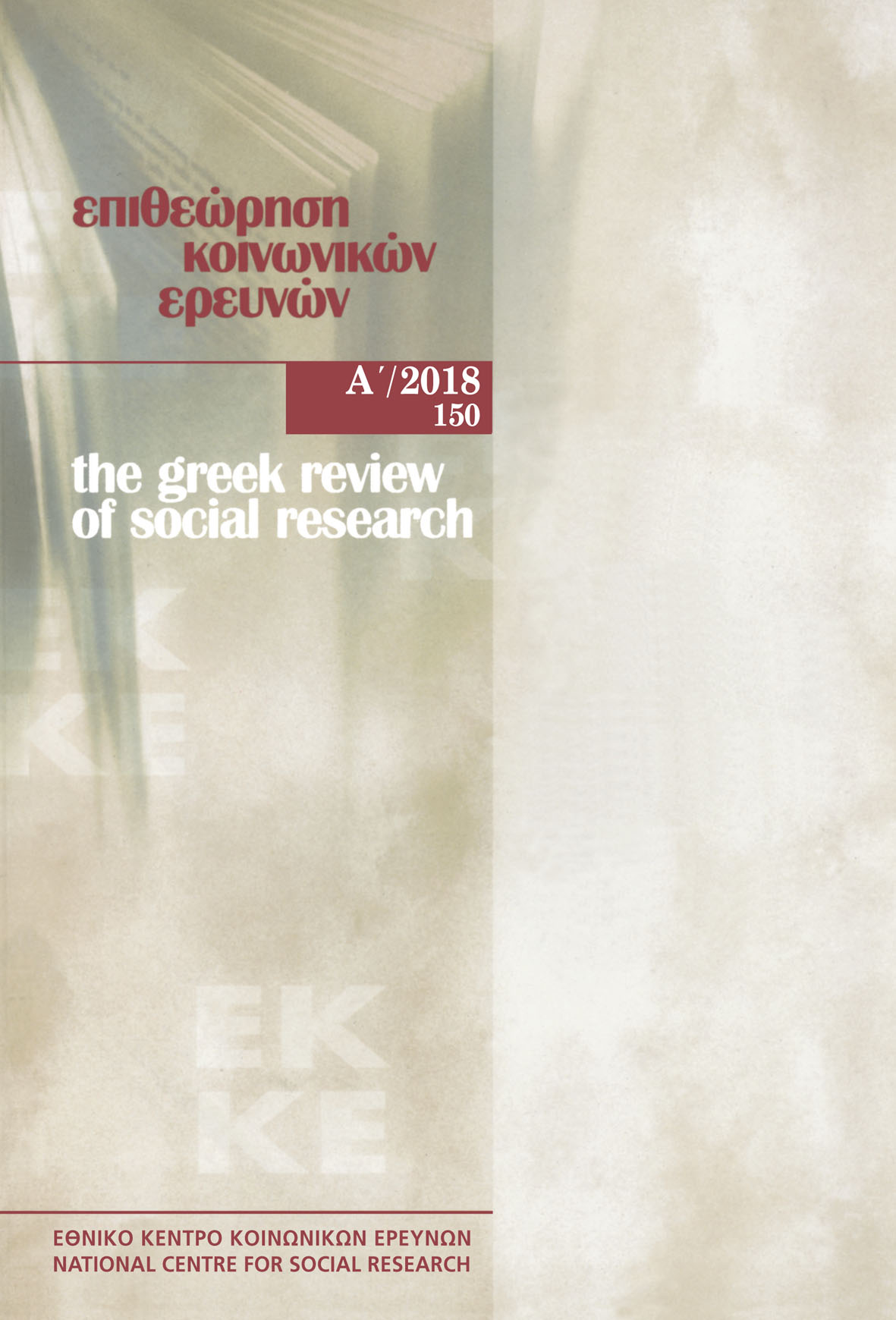Critical approaches to the political discourse of crisis: Examples from the Prime Minister’s address before the Greek referendum

Abstract
Drawing on the framework of Critical Discourse Analysis and following the principle of macro-level and micro-level interrelation, the present paper examines the discursive representations of the “we” group in the address of Prime Minister Alexis Tsipras for the Greek Referendum 2015. In our theoretical discussion we employ the notion of imaginary. Our data come from the official website of the Greek Prime Minister. Focusing on the micro-level we draw on the framework of systemic-functional linguistics to form our analytical proposal and we conduct an analysis of transitivity structures in extracts of the address.
Article Details
- How to Cite
-
Σεραφής Δ. (2018). Critical approaches to the political discourse of crisis: Examples from the Prime Minister’s address before the Greek referendum. The Greek Review of Social Research, 150, 77–110. https://doi.org/10.12681/grsr.17947
- Issue
- 2018: 150
- Section
- Articles

This work is licensed under a Creative Commons Attribution-NonCommercial 4.0 International License.
Authors who publish with this journal agree to the following terms:
- Authors retain copyright and grant the journal right of first publication with the work simultaneously licensed under a Creative Commons Attribution Non-Commercial License that allows others to share the work with an acknowledgement of the work's authorship and initial publication in this journal.
- Authors are able to enter into separate, additional contractual arrangements for the non-exclusive distribution of the journal's published version of the work (e.g. post it to an institutional repository or publish it in a book), with an acknowledgement of its initial publication in this journal.
- Authors are permitted and encouraged to post their work online (preferably in institutional repositories or on their website) prior to and during the submission process, as it can lead to productive exchanges, as well as earlier and greater citation of published work (See The Effect of Open Access).


